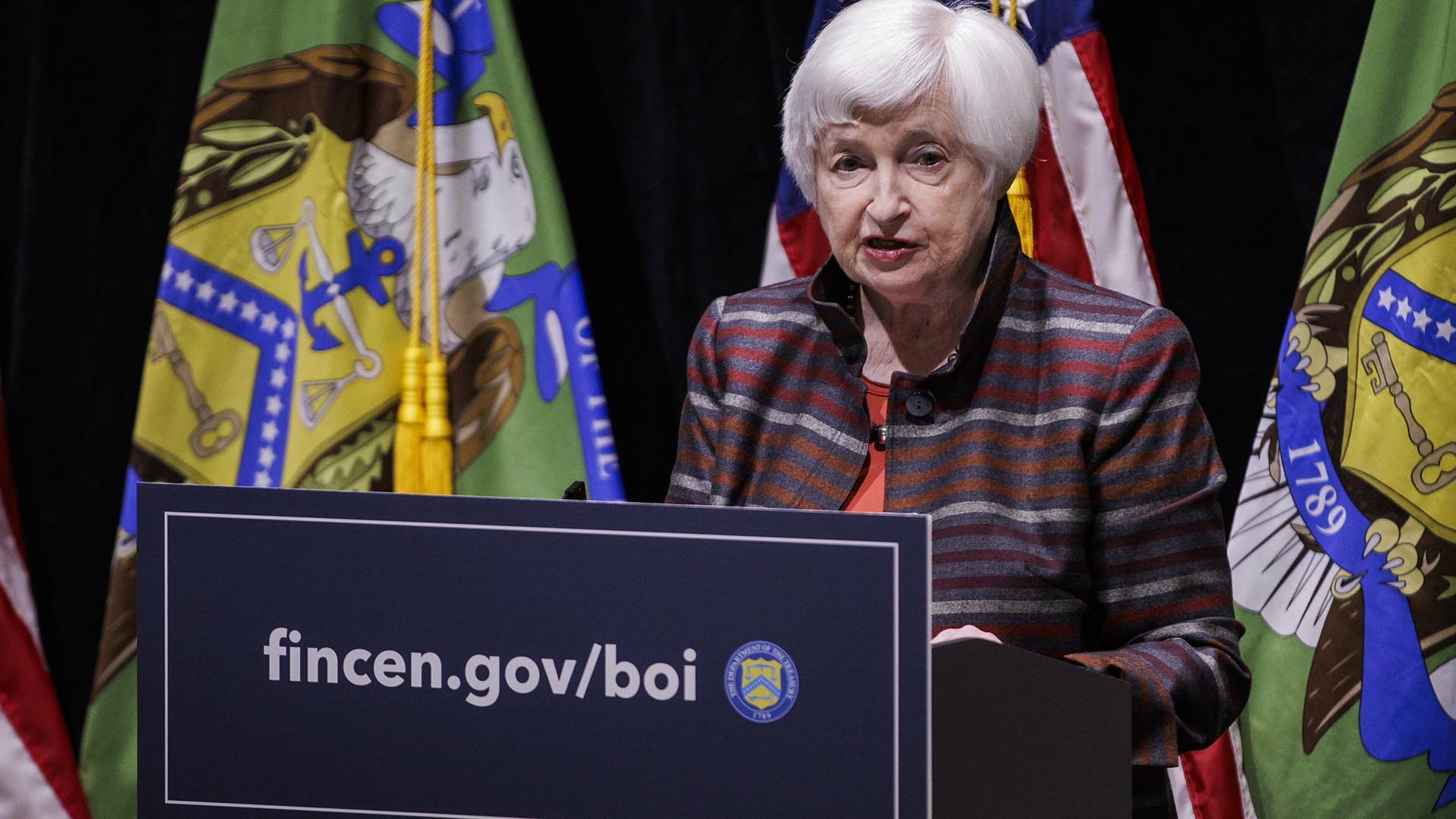IMPACT
New US company ownership database faces continued political attacks weeks after launch
Advocates have warned that criticism and challenges from business groups and their political allies are sowing confusion and fear among business owners.

The rollout of a landmark company ownership registry aimed at fighting dirty money flows in the U.S. has been met with political attacks and the spread of misinformation, amid ongoing tensions around the transparency tool.
The new database was officially launched by the United States Treasury Department on Jan. 1 as part of the government’s response to years of reporting by ICIJ and others that exposed the ease with which criminals can move illicit cash through the U.S. economy.
The beneficial ownership registry will collect the names of companies’ owners to unmask anonymous shell companies commonly used by criminals to hide dirty money and nefarious business activities. The information will only be disclosed to law enforcement agents, bank compliance officers and relevant regulators
About a week after its launch, Treasury Secretary Janet Yellen announced that 100,000 U.S. companies had already submitted their ownership information to the database.
“We’re closing a loophole and sending a clear message: The United States is not a haven for dirty money,” Yellen said in remarks given at the headquarters of the Financial Crimes Enforcement Network, or FinCEN, the Treasury office tasked with implementing the new system.
But the database’s apparently successful launch spurred a new round of criticisms and challenges from business groups and their allies on Capitol Hill — attacks that some advocates fear could spread misconceptions about the new law.
Last week, a Republican-led committee in the U.S. House of Representatives blasted the new database for presenting small businesses with a “mountain of red tape,” and asserted that noncompliance could lead to jail time for small business owners.
“Every single small business in America will be forced to comply with these new, onerous, and overly complex regulations,” stated an extensive statement released by the House Committee on Financial Services.
The statement included several assertions that caught the attention of database advocates. For instance, the committee said that the new database won’t work as intended because it has a proverbial escape hatch in the form of a box businesses can check saying they could not identify their owners. As ICIJ has previously reported, the potential for this “unknown” check box to be offered to businesses was a major point of contention in a draft version, but it never made it onto the form currently deployed.
“They’re putting out information to their constituents and to small businesses that is simply not true and misleading and confusing,” said Gary Kalman, executive director of the U.S. office of Transparency International, which advocated for the database’s formation.
The congressional committee also claimed that small businesses could face “criminal penalties for non-compliance with a reporting regime they are unaware even exists.”
But a business being criminally prosecuted for not knowing about the new law simply isn’t a possibility, according to Erica Hanichak, government affairs director for the FACT Coalition, a Washington, D.C.-based nonprofit that advocates for financial accountability.
“Firms are not eligible for criminal penalties if they’re unaware of the law,” Hanichak told ICIJ. “The threshold is really high for a business to fall under any consequences under this law.”
The law itself states that a firm will break the law only when it “willfully” fails to report ownership information into the database.
Nonetheless, headlines suggesting dire scenarios for bystanders have cropped up repeatedly, including from a popular New York-based art blog declaring the new law can “send self-employed artists to jail.”
The Financial Services Committee did not respond to a request for comment.
One point House Republicans and Kalman agree on is that many business owners remain unaware of the law. In a recent survey of its members, the National Federation of Independent Business found that 90% of respondents did not know of the law.
“A lot of people have no idea this is even a thing,” said Marissa Mehler, an account manager at CorpNet, a California-based firm that helps set up and administer businesses. A new task of Mehler’s as of this month is helping clients submit ownership information to FinCEN’s new database. Mehler said that, after some back-and-forth with a business to obtain information needed for the ownership form and necessary copies of identification cards, it takes roughly 20 minutes to complete the new FinCEN form.
Hanichak emphasizes that this will be a one-time process for many business owners. “Take a small pizza shop,” Hanichak said. “As long as they don’t switch ownership, they won’t have to file again for 30 years or maybe never.”




